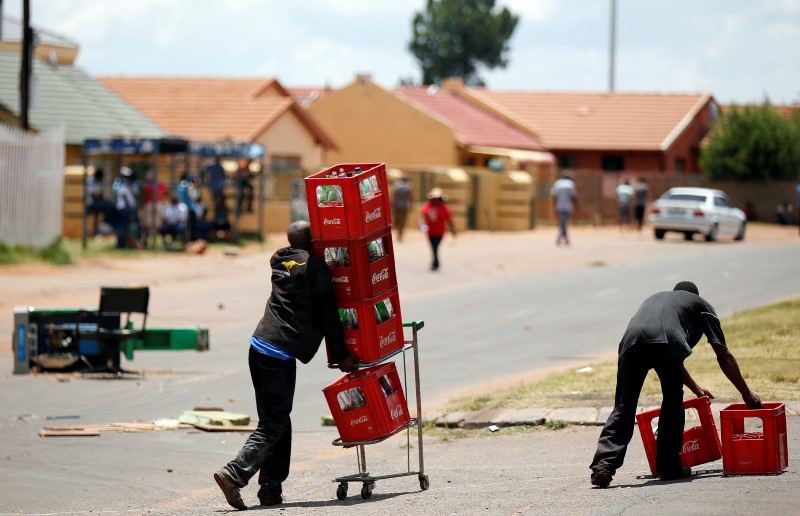
Coke Bottler to Rethink South Africa Spending Plans Due to Sugar Tax
JOHANNESBURG (Reuters) – Africa’s biggest Coke bottler, Coca-Cola Beverages Africa, will rethink its spending plans in South Africa if Pretoria’s proposed tax on sugary drinks gets the green light, a spokeswoman said on Thursday. In a bid to fight a growing obesity rate in the continent’s most lucrative market for Coca-Cola and fast-food chains in […]

JOHANNESBURG (Reuters) – Africa’s biggest Coke bottler, Coca-Cola Beverages Africa, will rethink its spending plans in South Africa if Pretoria’s proposed tax on sugary drinks gets the green light, a spokeswoman said on Thursday.

In a bid to fight a growing obesity rate in the continent’s most lucrative market for Coca-Cola and fast-food chains in sub-Saharan Africa, the government has proposed a 20 percent tax on sugar sweetened drinks under a plan that has delighted health campaigners and angered drink makers.
Coca-Cola Beverages Africa was created earlier this year through a combination of SABMiller and Coca-Cola African soft drink operations. The deal won an anti-trust go-ahead on several conditions that included a commitment to spend 800 million rand to develop farmers and retailers.
“It is not what the company is wanting to do but when you look at the impact the tax would have, we will have relook at some investment commitments we have made,” said Coca-Cola southern African spokeswoman Vukani Magubane.
The proposed levy, which was first announced by Finance Minister Pravin Gordhan in February, is expected to be implemented this year. Last month, the Treasury has asked the public submit comments on the proposal by Aug. 22.
It has already received endorsement from lobby group Public Health Association of South Africa, saying it was a cheaper intervention measure to fight obesity-linked diseases such as diabetes.
More than half of South Africa’s adults are overweight, with 42 percent of women and 13 percent of men obese, according to National Treasury data. Sub-Sahara’s most industrialized economy also has its most overweight population, the figures show.
A local soft drinks industry body, Beverage Association of South Africa, has already dismissed the proposed tax as “discriminatory” and warned it could lead to job losses. The industry employs about 200,000 people.
Britain on Thursday launched a strategy to tax companies selling sugary soft drinks, joining Belgium, France, Hungary and Mexico, all of which have imposed some form of tax on drinks with added sugar. Scandinavian countries have levied similar taxes for many years.
(Reporting by Tiisetso Motsoeneng, editing by David Evans)